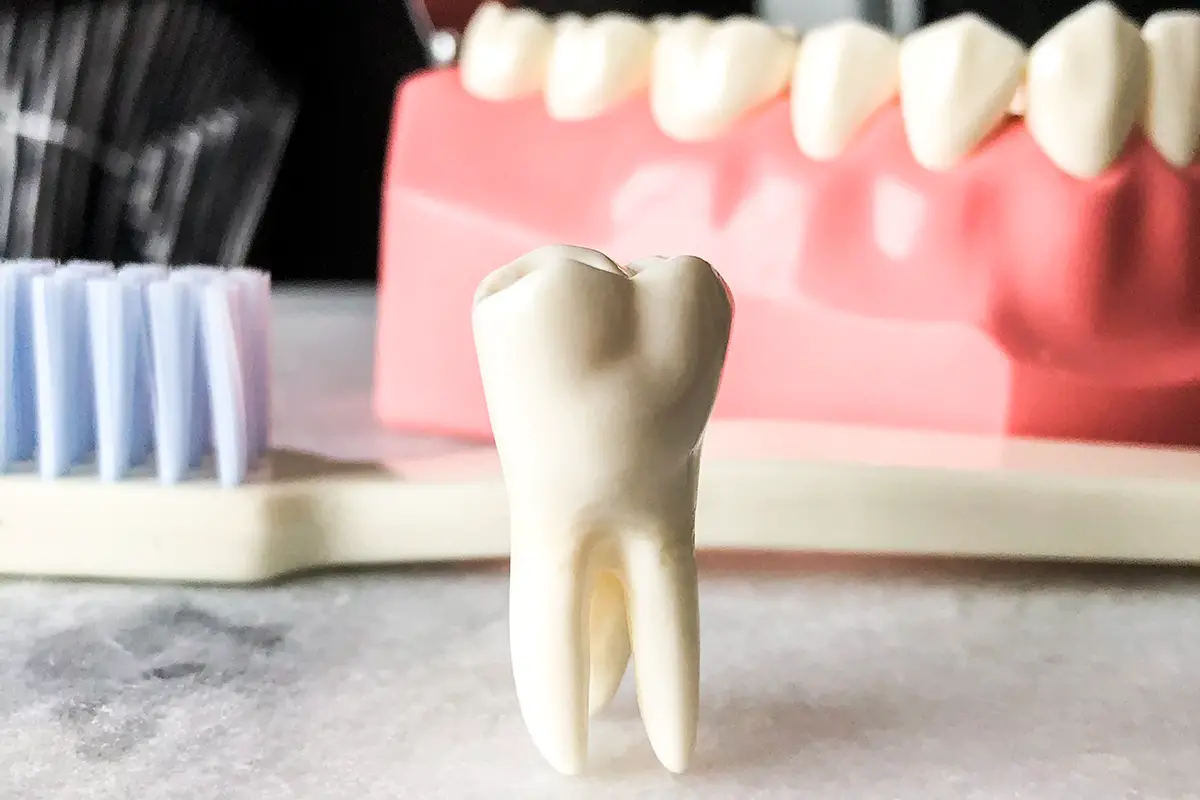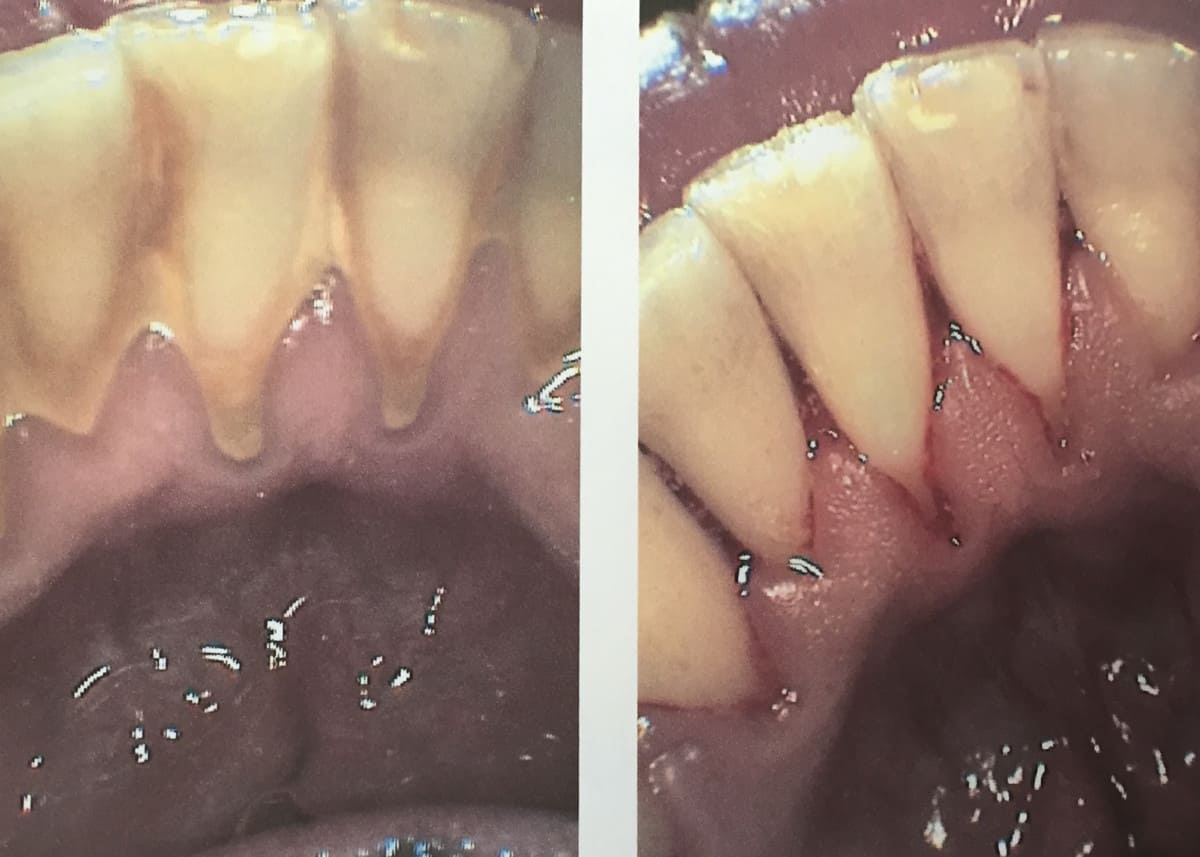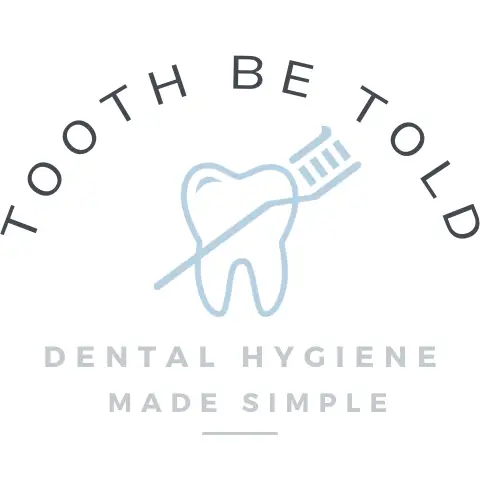
Tartar (also called calculus) is the hard deposit of calcified food debris and bacteria that adheres to the tooth, often confused with plaque, a soft deposit on the teeth. As a dental hygienist, my professional duty is to explain the difference to my patients, as the two terms often get used interchangeably. My patients have asked me if there are ways to remove the tartar from their teeth at home.
It is best not to do at-home therapies for removing tartar (calculus). Irreversible damage and serious problems can arise, such as infections and tooth structure loss if attempted to remove at home. Dental professionals are highly qualified to remove all tartar (calculus) present on teeth safely.
In this post, I go over and bust the myths of at-home therapies for removing tartar (calculus). I explain why having a trained and licensed dental professional perform scaling is important and impactful and what we do in a dental hygiene appointment. I also go into detail on how to best prevent tartar (calculus) from forming.
Why you should not remove tartar from teeth at home
Please, please, PLEASE, do not attempt to remove tartar at home or anywhere that does not have trained and licensed professionals. We, dental hygienists, go through relentless and scrutinizing training and examinations to graduate. Using vinegar, baking soda, citrus fruits, or any other remedy will not remove the tartar from your teeth… if they did, dental hygienists would not be necessary.
*In the rest of this post, I am going to use the word calculus instead of tartar, but keep in mind tartar and calculus are the same things, and the words can be used interchangeably!
It makes me so incredibly sad to see all of these dental professionals and dental office websites stating that you can remove calculus at home. It is incredibly damaging to both the unknowing patient and the integrity of dental professionals who actually want to help people and give them good and honest advice.
At-home calulus removal can cause burnished calculus
Burnished calculus is calculus that is under the gum line that has been only partially removed and can be smooth in texture. Because the calculus isn’t effectively removed, it becomes a magnet for bacteria very soon after and impedes healing.
Using a dull metal “hook” or over-the-counter dental scaler will cause burnished calculus, and will not remove the calculus in its entirety. Not to mention can cause severe damage to the gums, and increase the chance of infection if it is not clean.
Burnished calculus can be a significant issue because it makes it hard for us dental hygienists to detect it, which in the long run can negatively affect your oral health, and overall health. Our goal as dental hygienists is to remove the calculus in its entirety, so your body has time to heal, and the number of harmful bacteria is significantly reduced!
Over-the-counter remedies that will not remove calculus
I have scoured the internet and also asked my patients in the chair what they have read/thought about removing calculus at home. Below is a list of over-the-counter remedies that I have found that claim to remove calculus, but in reality will not;
- cloves
- aloe vera
- baking soda
- guava
- salt
- vinegar
- orange peels
- sesame seeds
- lemon
- essential oils
- oil pulling
- figs
- cheese
- spicy foods
- vitamin paste
These items are listed due to varying reasons.
Some are acidic, and people think the acid will break down the calculus. It will not do much for the calculus, but it can dissolve the tooth surface and cause acid erosion, tooth decay and sensitivity.
Other items on the list are there because of their anti-microbial properties.
Some are listed because they are abrasive, and they can wear away the calculus, but it will have more damage on the tooth structure!
Please don’t do any of these at home!
Will white vinegar and saltwater remove tartar/calculus
White vinegar and saltwater will not remove tartar/calculus. Vinegar and saltwater can have detrimental effects on the tooth structure, cause acid erosion, tooth wear, sensitivity, and increase the incidence of tooth decay. Only a dental professional should remove tartar/calculus.
As I mentioned earlier in this post, these “remedies” do not work, so please avoid them at all costs, and pay a visit to your dental hygienist.
Which toothpaste is best for tartar/calculus?
The best toothpaste for tartar/calculus includes stannous fluoride, zinc, pyrophosphate, and abrasives. Chemical agents delay the calcification of bacteria onto the teeth, allowing more time to be removed through flossing and brushing. Toothpaste does not remove calculus that has already formed.
I do not usually recommend using calculus control (tartar control) toothpaste as I find they can be abrasive and be harsh on the gum tissue and teeth if overused. But if you want to use one, I recommend the Sensodyne Tartar Control (Amazon link) . I really love Sensodyne’s products, and I am a proud user of them myself.
. I really love Sensodyne’s products, and I am a proud user of them myself.
I educate my patients in plaque removal and will guide them to use an electric toothbrush, perfect their flossing technique, and discuss how diet plays a role in plaque formation. And sometimes, my patients who tend to form calculus quickly will come in more often for their hygiene appointments to maintain their oral health.
Why do I get tartar/calculus on my bottom teeth?

Calculus is caused by the minerals of our saliva and fluid underneath the gum line (gingival crevicular fluid), which hardens/calcifies the plaque (soft debris) on the teeth.
Calculus forms more on the bottom teeth (backside of lower front teeth) because a large salivary gland exits underneath the tongue. Saliva contains minerals that calcify bacteria onto the teeth, forming calculus. Increased saliva secretion around the bottom teeth results in more calculus formation.
The small size of the lower front teeth and common crowding/crooked teeth also contribute to increased calculus formation.
How do hygienists remove tartar/calculus?
Dental hygienists use both ultrasonic and manual scalers to remove calculus from teeth. Scalers are maintained to be sharp to remove calculus and reduce burnished calculus effectively. There are specific instruments for different teeth and surfaces of the teeth.
I wrote an entire post that explains what happens in a dental hygiene appointment. You’ll be surprised about how much goes on in the background and that your appointment isn’t “just a teeth cleaning.” I linked it below!
Read now: How Dental Hygienists Clean Teeth! What You Need to Know!
How to prevent tartar/calculus formation at home
Preventing calculus formation relies on consistent flossing and brushing. Flossing at least four to seven times a week, brushing for at least two minutes, twice a day, with fluoride toothpaste, and using an electric toothbrush will have the most significant impact on preventing calculus formation.
The best thing to do is get into a routine that works for you. I have some patients who hate flossing at night because they are so tired. They have made plans to floss during the day and they are more likely to stay consistent with their routine.
Also, choosing the right electric toothbrush can impact calculus formation. You will want to buy a good electric toothbrush, and the only ones I ever recommend are the Oral-B and Sonicare. I prefer the Oral-B due to the scientific evidence that it is more effective. I will link the study here .
.
Right now, I am using the Oral-B genius , but I also have the Oral-B iO
, but I also have the Oral-B iO , which I made a YouTube video about!
, which I made a YouTube video about!
Read now: Hygienist Compares: Sonicare vs. Oral-B Electric Toothbrushes
I really hope I have informed you today, and helped you along in your oral health journey.
Have a wonderful day,
Holly 🙂
